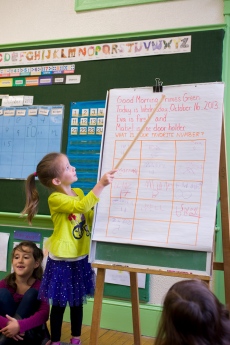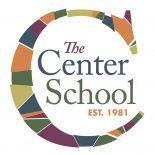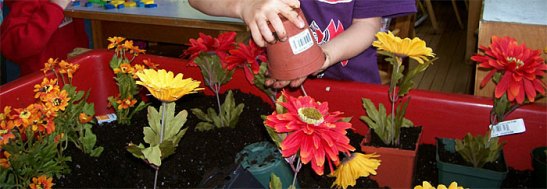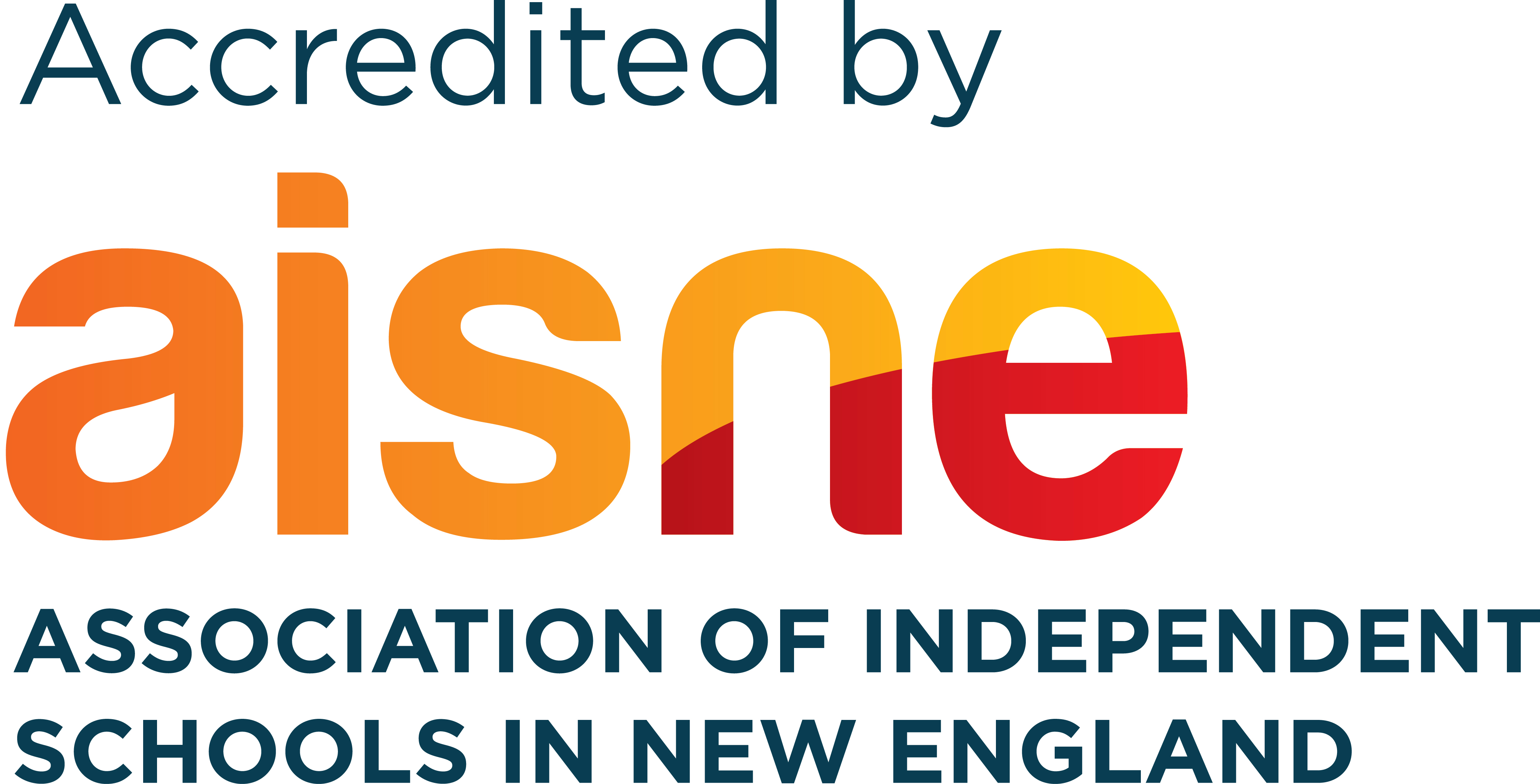The Center School
RIGOROUS EDUCATION FOR DEEP THINKERS AND CREATIVE SPIRITS. PRESCHOOL-8TH GRADE. EST. 1981
Primes Pedagogy
Helpful Hints to the new Primes from the old Primes:
“When I first came to the Primes I was a little scared. But when I got used to it I wasn’t scared any more because I used the Good-Bye Window.”– Cassidy
“Ruby is doing Author Sharing and my class is watching Ruby. We like Ruby’s sharing. We love her.”– Serafina
“You will like learning about science. It is fun you will like doing experiments. Elements are fun to learn about.”– Daniel
“You will like making a bird sculpture. I liked making my chickadee.” – River
 “The distinctive voices of the children” play an intrinsic role in the way our community unfolds in the Primes Kindergarten-First Grade classroom. Our year begins with activities that help the children get to know one another and eventually, to notice and to take care of each other. Morning meeting greetings, songs and games flow into story telling and impromptu theatrical performances. We create our classroom, meeting and playground rules together so that the rules we live by help to hold the community together. Teachers guide this process, listening to children, documenting their ideas and helping them to reflect on their individual and group insights and challenges.
“The distinctive voices of the children” play an intrinsic role in the way our community unfolds in the Primes Kindergarten-First Grade classroom. Our year begins with activities that help the children get to know one another and eventually, to notice and to take care of each other. Morning meeting greetings, songs and games flow into story telling and impromptu theatrical performances. We create our classroom, meeting and playground rules together so that the rules we live by help to hold the community together. Teachers guide this process, listening to children, documenting their ideas and helping them to reflect on their individual and group insights and challenges.
Our approach to learning combines ongoing project work with daily academic workshops. Teachers and children co-create our research projects together. Because they are open-ended processes they can provide many different entry points so that different learning styles are included. We believe that children create knowledge as they attempt to understand their world. As their teachers we know we are on the right track when the children are so engaged that they present us with their own imaginative possibilities and personal theories.
The children develop confidence as they tackle challenges that arise. Projects invite children to actively use their social, aesthetic and academic representational strategies to extend their explorations. In recent years, the Primes have engaged in extended studies of their neighborhoods, dragons and amphibians, local birds, winter adaptations, and the periodic table of elements.
Academic workshops enable each of the Primes to explore, practice and master skills wherever possible by connecting them to real questions in their own lives. This connection serves to deepen investment in the curricula.
In our math workshops children weave skill-based investigations with project like explorations. We strive to ‘do mathematics,’ by engaging in mathematical thinking. We understand that thinking about the world through a variety of mathematical lenses, is both a social process, in which children share and debate their ideas, as well as an intellectual process, in which they learn to represent the world in a variety of ways. In their first year in the Primes, children explore a fundamental aspect of mathematical relations by complicating their often ‘rote’ concept of number through an investigation of the nature of patterns.
Repeating units are created through a variety of games as well as kinesthetic, visual-spatial arts activities. In their second year in the Primes, many children will arithmeticize their concept of pattern leading them to notice and generate ideas about patterns involving odd and even numbers, fives, tens, and hundreds. Many will wrestle with the marvelous concept of infinity. Others will begin to explore relationships between number and 2-D and 3-D geometric forms.
We believe that every child is already a capable reader and writer. The processes of reading and writing combine to extend their already formidable capacities for story telling and representing ideas through a variety of aesthetic forms such as drawing, sculpture, and movement. As the year begins, the children use reading and writing for real purposes such as recognizing each other’s names while taking attendance, understanding the morning question, taking opinion survey’s and finding out which daily job is theirs for taking care of the classroom.
In their first year in the Primes, our reading workshop strives to enable children to enjoy children’s literature while simultaneously applying underlying phonemic, kinesthetic and word solving strategies. First year children often read in small groups from leveled readers. Many Primes are reading for understanding in their second year. We know that they are ready to begin to read chapter books when they show that they are self –correcting their reading and monitoring their reading for meaning.
Our daily reading program complements our emphasis on social learning. After a typical session of reading, we often invite the children to share their ideas about stories with each other. We are particularly interested in exploring not only the main problem of a story, but what internal and insightful resources the main characters were able to bring to their attempts to solve a problem.
Even if it involves drawing and dictating their thoughts, in our Primes writing workshop the children start to write from experience starting on the first day of school. Once the school year gets going we are writing just about every day. Just like talking,writing includes a wide variety of activities including making lists, giving advice, reflecting, asking questions, telling jokes, composing stories, and recording observations. No worksheet can match the excitement of exchanging pen pal letters with one of the older students at the Center School. In Author Sharing, we often invite the Primes to share their writing about important life events, birthdays, family experiences. Periodically, throughout the year, they write about their ‘hopes and dreams,’ and write reasons for the selections of items that they have chosen for their Portfolios. We end every year by writing about advice to next year’s Primes.
As a classroom of four to seven year olds, the Primes are learning and playing and working together along a diverse developmental continuum. Our goal is to continue to create a caring community in which each child is known, respected and listened to. This attitude informs our outside time activities in which children play cooperative games and are expected to be inclusive during free play time.
Our classroom doesn’t end with the doorway, but connects with the other classrooms and also extends further out onto the playground and out to the nearby fields and up Rocky Mountain. Throughout the year older students will visit our room as readers, helpers and friends. There are many events which will also bring us together from our weekly All School Meetings, seasonal All School Games, to Mountain Day, a variety of cross-class sharings, and the Center School’s Museum in the spring.




